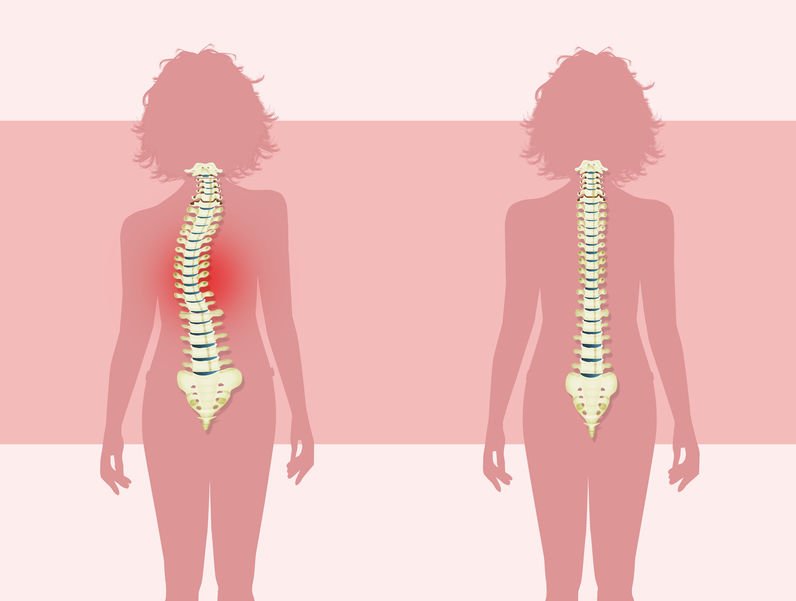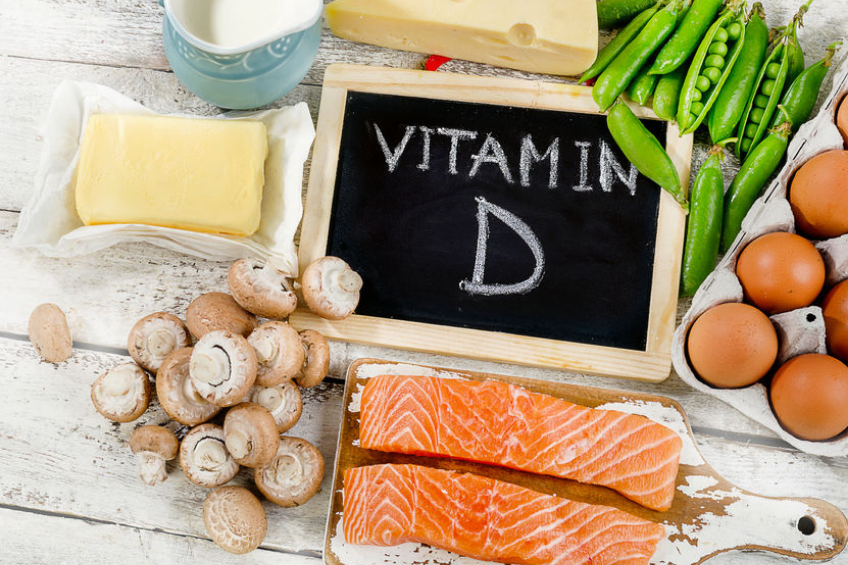Scoliosis is a medical condition characterized by an abnormal curvature of the spine. It affects approximately 2-3% of the population, with the majority of cases occurring in adolescents. While the exact cause of scoliosis is still unknown, research suggests that a combination of genetic and environmental factors may contribute to its development. In recent years, there has been growing interest in the role of nutrition in managing scoliosis. This article aims to explore how nutritional choices can impact scoliosis management and provide insights into essential nutrients, foods to avoid, and creating a balanced diet plan for individuals with scoliosis.

Understanding Scoliosis: Causes and Symptoms
Scoliosis can be classified into two main types: idiopathic scoliosis, which has no known cause, and secondary scoliosis, which is caused by underlying conditions such as muscular dystrophy or cerebral palsy. The most common symptoms of scoliosis include an abnormal curvature of the spine, uneven shoulders or waist, and back pain. While nutrition alone cannot cure scoliosis, it can play a significant role in managing the condition and improving overall health.
The Role of Nutrition in Scoliosis Management
Proper nutrition is essential for individuals with scoliosis as it can help support bone health, reduce inflammation, and promote overall well-being. A well-balanced diet can provide the necessary nutrients to support the growth and development of the spine, maintain muscle strength, and prevent complications associated with scoliosis.

Essential Nutrients for Scoliosis Patients
Several nutrients are particularly important for individuals with scoliosis. These include calcium, vitamin D, omega-3 fatty acids, antioxidants, vitamin K, magnesium, and protein. Ensuring an adequate intake of these nutrients can help support bone health, reduce inflammation, and promote optimal spinal development.
The Impact of Calcium and Vitamin D on Scoliosis
Calcium and vitamin D are crucial for maintaining strong and healthy bones. Adequate calcium intake is essential for individuals with scoliosis as it helps support bone density and strength. Vitamin D, on the other hand, plays a vital role in calcium absorption and utilization. Research has shown that individuals with low levels of vitamin D are more likely to develop scoliosis or experience progression of the condition. Therefore, it is important for individuals with scoliosis to ensure they are getting enough calcium and vitamin D through their diet or supplementation.

Omega-3 Fatty Acids and Scoliosis: Benefits and Sources
Omega-3 fatty acids are a type of polyunsaturated fat that has been shown to have anti-inflammatory properties. Inflammation is believed to play a role in the progression of scoliosis, making omega-3 fatty acids potentially beneficial for individuals with the condition. Good sources of omega-3 fatty acids include fatty fish like salmon and mackerel, flaxseeds, chia seeds, and walnuts. Incorporating these foods into the diet can help reduce inflammation and support overall spinal health.
Antioxidants and Their Role in Scoliosis Management
Antioxidants are compounds that help protect the body against oxidative stress and inflammation. They can be found in a variety of fruits and vegetables, such as berries, leafy greens, and citrus fruits. Research suggests that antioxidants may play a role in reducing inflammation and oxidative stress associated with scoliosis. Including a wide variety of antioxidant-rich foods in the diet can help support overall health and potentially slow down the progression of scoliosis.
The Connection Between Scoliosis and Vitamin K
Vitamin K is a fat-soluble vitamin that plays a crucial role in bone health and blood clotting. Recent studies have suggested a potential link between vitamin K deficiency and the development of scoliosis. Vitamin K can be found in green leafy vegetables, such as kale and spinach, as well as in fermented foods like sauerkraut and natto. Ensuring an adequate intake of vitamin K through diet or supplementation may help support bone health and potentially reduce the risk of scoliosis.
Exploring the Effects of Magnesium on Scoliosis
Magnesium is an essential mineral that plays a role in over 300 biochemical reactions in the body, including muscle and nerve function, protein synthesis, and bone health. Research has shown that individuals with scoliosis may have lower levels of magnesium compared to those without the condition. Magnesium-rich foods include dark chocolate, nuts, seeds, legumes, and leafy greens. Incorporating these foods into the diet can help support muscle function and overall spinal health.
The Role of Protein in Scoliosis Management
Protein is an essential macronutrient that plays a crucial role in muscle development and repair. It is particularly important for individuals with scoliosis as it helps support muscle strength and overall spinal stability. Good sources of protein include lean meats, poultry, fish, eggs, dairy products, legumes, and tofu. Ensuring an adequate intake of protein can help support muscle development and prevent muscle imbalances that may contribute to scoliosis progression.
Foods to Avoid for Scoliosis Patients
While certain nutrients are beneficial for individuals with scoliosis, there are also foods that should be avoided or consumed in moderation. These include processed foods, sugary snacks and beverages, high-sodium foods, and foods high in saturated and trans fats. These foods can contribute to inflammation, oxidative stress, and poor overall health. Instead, individuals with scoliosis should focus on consuming whole, nutrient-dense foods that support optimal spinal health.
Creating a Balanced Diet Plan for Scoliosis Management
To create a balanced diet plan for scoliosis management, it is important to focus on consuming a variety of nutrient-dense foods from all food groups. This includes fruits, vegetables, whole grains, lean proteins, and healthy fats. It is also important to stay hydrated by drinking an adequate amount of water throughout the day. Consulting with a registered dietitian can be beneficial in developing a personalized diet plan that meets individual nutritional needs and supports optimal spinal health.
In conclusion, while nutrition alone cannot cure scoliosis, it can play a significant role in managing the condition and promoting overall health. Adequate intake of essential nutrients such as calcium, vitamin D, omega-3 fatty acids, antioxidants, vitamin K, magnesium, and protein can help support bone health, reduce inflammation, and promote optimal spinal development. Avoiding processed foods, sugary snacks, high-sodium foods, and foods high in saturated and trans fats is also important for individuals with scoliosis. By creating a balanced diet plan that incorporates these principles, individuals with scoliosis can support their overall well-being and potentially slow down the progression of the condition.
References
- Weinstein SL, Dolan LA, Cheng JC, et al. “Adolescent idiopathic scoliosis.” Lancet. 2008;371(9623):1527-1537. doi: 10.1016/S0140-6736(08)60658-3. Link
- Negrini S, Donzelli S, Aulisa AG, et al. “2016 SOSORT guidelines: Orthopaedic and rehabilitation treatment of idiopathic scoliosis during growth.” Scoliosis and Spinal Disorders. 2018;13:3. doi: 10.1186/s13013-018-0175-8. Link
- Trobisch P, Suess O, Schwab F. “Idiopathic scoliosis.” Dtsch Arztebl Int. 2010;107(49):875-883. doi: 10.3238/arztebl.2010.0875. Link
- Hresko MT. “Clinical practice. Idiopathic scoliosis in adolescents.” N Engl J Med. 2013;368(9):834-841. doi: 10.1056/NEJMcp1209063. Link
- Bettany-Saltikov J, Weiss HR, Chockalingam N, et al. “Surgical versus non-surgical interventions in people with adolescent idiopathic scoliosis.” Cochrane Database Syst Rev. 2015;2015(4). doi: 10.1002/14651858.CD010663.pub2. Link
- Social Security Administration. “Disability Benefits.” https://www.ssa.gov/benefits/disability/. Link
- Lonstein JE, Carlson JM. “The prediction of curve progression in untreated idiopathic scoliosis during growth.” J Bone Joint Surg Am. 1984;66(7):1061-1071. doi: 10.2106/00004623-198466070-00008. Link
- Kaspiris A, Grivas TB, Weiss HR, Turnbull D. “Scoliosis: Review of diagnosis and treatment.” International Journal of Orthopaedics. 2013;37(1):34-42. doi: 10.1038/s41390-020-1047-9. Link
- Monticone M, Ambrosini A, Cazzaniga D, Rocca B, Ferrante S. “A new approach to scoliosis: Role of nutritional and lifestyle factors.” Eur Spine J. 2018;27(5):1234-1242. doi: 10.1007/s00586-018-5733-4. Link

